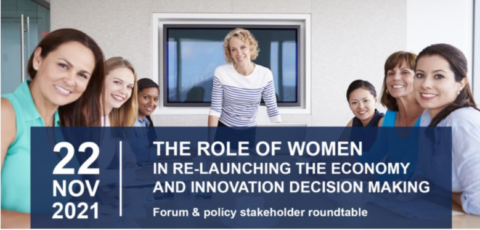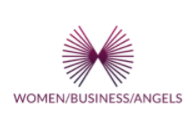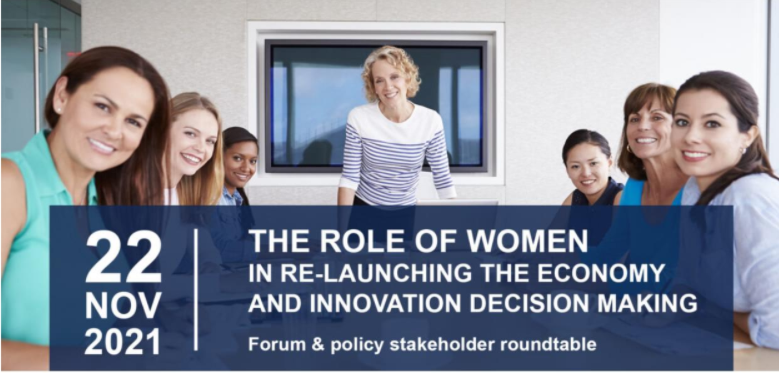Gender equality will lead to improving living conditions in any economy
Gender equality must be a priority at a national level, this right must not only be recognized but also effectively applied to all aspects of life: political, economic, social and cultural. Only together, through mutual support and appreciation, the cooperation of men and women will lead to gender equality and to an improvement of living conditions in any modern economy. This was the central message of the conference organized by the National Association of Entrepreneurs "Women's Entrepreneurship in an Innovative and Changing World", within the WINGATE project: "Together for a competitive, inclusive Europe".
Her Excellency, Siri Beate Barry - Ambassador of the Kingdom of Norway in Bucharest, present at the event, said: “Women's participation is on Norway's agenda and has become a core value and a Norwegian standard. Gender equality affects all aspects of our lives. Cross-border collaboration in Europe is valuable, and we can gain by sharing experiences, learning from each other, and looking for solutions together, such as through the Wingate project. I can't stress enough how important it is for women and men to work together to achieve gender equality.”
For her part, Cristina Chiriac, president of the National Association of Entrepreneurs, ANAA, has the opinion that: a stronger support of women's rights, empowering women and ensuring gender balance, will enable all economies to reap the full economic and social potential that they bring as a contribution to society. Negative gender stereotypes must be abandoned, and the support of women by men is a priority for them to reach their full potential. Studies show that more and more women want to become financially independent, open their own business and perform in their fields of activity”. She believes that "in today's and tomorrow's world, real equality between women and men is also the key to our economic and social success - not only at European and national level but also in our regions, cities and local communities."
The main objective of the WINGATE project is to create an online platform and an innovative learning center where specialized courses on business ideas, management and business plan, the establishment of a start-up and notions of negotiation, business strategy, communication and PR will be developed. This tools will provide opportunities for participants to improve their presence in the local and international market.
The conference was moderated by Dan Doroftei - entrepreneur and health consultant and started with the messages of the officials: Her Excellency, the Ambassador of the Kingdom of Norway in Bucharest, Siri Beate-Berry, the representative of the Romanian Parliament, Ana Loredana Predescu, deputy, Cristina Chiriac - president of the National Association of Entrepreneurs and Andreea Negru - moderator of the first panel of the conference and Communication Expert of the Wingate project. The second panel "Cross-border cooperation, European economic stimulus", moderated by Roxana Gabor Iliescu, entrepreneur, founder of Mai Academy, with the following speakers: Agnes Puscas - Project Manager Wingate (Hungary), Aleksandar Bijelic - President of Serbian Venture Network Senev (Serbia) ), Marit H. Silseth - Project Officer Wingate Norway and Angela Gladei - President of the Association of Women Entrepreneurs of the Republic of Moldova (AFAM). In the chapter "Education and innovation", moderated by Nicoleta Munteanu - founder of Kids in Business, Tova Ben-Nun Cherbis - president and founder of Lauder-Reut Educational Complex, Marius Ghenea - entrepreneur, business angel and author, Corina Puiu - director had presentations executive Rethink and Ana Maria Stancu - CEO of Bucharest Robots. The conference ended with a panel dedicated to "Pandemic Lessons", moderated by Cristina Dragna - entrepreneur, strategic communication specialist, with the following guests: Raluca Ioana Man - founder of RSEVEN LTD (Cyprus), Daniela Cireașă - founder of Netspace, president of CONAF Brăila, Alina Pătrăhău - the founder of Dăruiește Aripi Association and Mirela Bucovicean - founder of Molecule F.
The event was part of the WINGATE project which will run for a period of 3 years and aims to help women entrepreneurs and business angels in their growth and development.
The project partners are: SKC-Consulting (Hungary) main partner, Serbian Venture Network (Serbia), Women Business Angels (Hungary), Kvinner i Business (Norway) and the National Association of Romanian Entrepreneurs, which also covers the Republic of Moldova.
The Wingate project is funded by Iceland, Liechtenstein and Norway through the EEA and Norway Grants Fund for Regional Cooperation.
Report on the First Regional Forum on The role of women in innovation decision making

Stakeholders from Nine Countries Joined the First Regional Forum on
The role of women in re-launching the economy and innovation decision making
On 22 November 2021, countries of Norway, Hungary, Slovakia, Poland, the Czech Republic, Georgia, Serbia, Romania and Moldova joined the regional forum in Budapest, supported by the International Visegrad Fund and the EEA and Norway Grants Fund for Regional Cooperation.
At the hybrid event titled „The role of women in re-launching the economy and innovation decision making” speakers included Marianna Neupauerová (Deputy Director, International Visegrad Fund), Irén Márta (Director, Business Council for Sustainable Development in Hungary), Aleksandar Bijelić (Director, SeVeN, Serbia) and Janina Lamøy (Innovation Norway). The organizing Women/Business/Angels Association (WBA) aims to connect CEE stakeholders and to share best practices from business, academia and government.
„It is Women/Business/Angels/ Association’s strong belief that by connecting business angel investment and funding with innovative companies, countries can accelerate innovation capacity building as a competitive advantage in CEE” – pointed out Eszter Szabó, founding President.
„Working with CEE and Norway shows that there is a lot in common in the two places while building a stronger innovation ecosystem. We can learn from each other’s experiences and connections” – said Rita Anson from Winnetwork, Norway.
The Forum is a milestone in the efforts of Women/Business/Angels Association to invite more women into innovation and investments. Built on this stakeholder meeting WBA will present for chambers of commerce and major companies the need and opportunity to cooperate. WBA also starts a 5-session angel investing and mentoring training for CEE in the first half of 2022. For more information, please visit http://www.wbusinessangels.com/en/ or email womenbusinessangels@gmail.com.
Click here for a more detailed summary of discussion on the forum!
The WINGATE project: Serbia, Romania, Moldova, Hungary and Norway
Women/Business/Angels is a beneficiary partners in the WINGATE project, funded by Iceland, Liechtenstein and Norway through the EEA and Norway Grants Fund for Regional Cooperation. This consortium works across Norway, Serbia, Hungary, Romania and Moldova, supporting and training women entrepreneurs and women business angels.
The Visegrad 4+ project: Visegrad 4+ countries
Women/Business/Angels Association is the consortium leader of a project, co-funded by the International Visegrad Fund, with participating partners from the Czech Republic, Poland, Slovakia, Georgia and Moldova besides Hungary. We aim to support the development of business angeldom and innovation ecosystem building in these countries and within that, the role that women play in making investment decisions in innovative startups.
Implemented by:

Business/Women/Angels Association aims to grow the number of angel investors in Central and Eastern Europe (CEE) and works with its coalition partners. The Association invites a wider audience, both women and men, to gain experience, learn about new opportunities and new ways to make the region’s economy stronger while having a return on investment for each. The Association was recognized as a European Best Practice by Candace Johnson, President of EBAN in 2017. The Association is non-profit, non-partisan. Members pay a yearly membership fee.
Follow Women/Business/Angels on social media for latest news:
Facebook: https://www.facebook.com/wbusinessangels/
Linkedin: https://www.linkedin.com/company/women-business-angels-hu/
Website: http://www.wbusinessangels.com/en/
Inclusive solutions to common challenges
Summary of a roundtable with projects implemented under the EEA and Norway Grants Fund for Regional Cooperation
The second meeting held on the first day of the Regional Funds Week was dedicated to inclusiveness, one of the core objectives and values promoted not only by the EEA and Norway Grants, but across the European Union. This event was hosted by Katarzyna Zabratańska, Manager for Equality and Inclusive Culture at Żabka Polska, the participants were welcomed and introduced to the topic by Nora Mehsen, Sector Officer at Funds and Horizontal Concerns Unit from the Financial Mechanism Office. Representatives of seven projects implemented under the Fund for Regional Cooperation participated as speakers in
the meeting, which attracted nearly 60 spectators joining online.

At the beginning of the roundtable we had the opportunity to learn more about the projects represented by the speakers – who they target, what their goals are and how they want to reach them. We also got to know the achievements to date of individual initiatives, who were willing to share their experience and knowledge. The representatives answered a question which dimensions of diversity are the most important and priority from the perspective of their actions, giving particular examples from their countries, organisations and projects. After a brief introduction, it was the turn of the individual presenters to speak. David S. Evangelista, President and Managing Director of Special Olympics Europe Eurasia, from "Inclusion through sports for children with developmental disabilities” project and András Nun, Executive Director at Autonomia Foundation, representing "New solutions to old problems" project, talked about the biggest barriers and stereotypes about specific groups they work with/for. Ágnes Puskás, Project Manager at SKC Consulting from “Wingate” project, focused on the identification of skills that, according to the women from different countries she previously interviewed, are perceived as obligatory to succeed in business. The topic of skills was also developed by David S. Evangelista, who furthermore addressed the issue of specific essential competences which his project tries to develop among children with intellectual disabilities, indicating how to achieve it.
How to describe the role of civil society and grassroots movements in creating and implementing inclusive solutions and what are their advantages comparing with top down approaches was then discussed by Veronika Móra, Director at Ökotárs Alapítvány – Hungarian Environmental Partnership Foundation, from "Reclaim our civil space!" project and Elisa Lironi, Senior Manager, European Democracy at ECAS – European Citizen Action Service, representing “Co-Deciding Europe: Civic Tech for Good Governance and Active Citizenship!” project. The topics such as how do they understand being active citizen and what are their definitions and benchmarks were addressed, too. Elisa also tried to answer the question on how we can deal with inclusiveness challenges using big data and AI.

Later in the meeting we were able to learn a little more about the specifics of the project “HOPE – HOlistic radicalisation Prevention initiative", whose representatives – Pedro das Neves, Chief Executive Officer at IPS Innovative Prison Systems together with Ljiljana Palibr, Project Manager of the Helsinki Committee for Human Rights in Serbia – talked about the role of specific partners and stakeholders from the countries where they cooperate, taking into account that the project has ambition to craft holistic and systemic solutions. The questions that were answered were also how to use partners’ potential, who plays the strategic role and why. Shortly afterwards Pedro das Neves, Ágnes Puskás and András Nun shared some best practices from their projects, then all representatives have indicated their recommendations and foresights referring to building inclusive society and solutions in (post)pandemic context. “The most important reflections I have after our roundtable are that, firstly, we must work collectively, inclusiveness is team-work. Together we are powerful and impactful. We will struggle with different obstacles and we will grow,” Katarzyna Zabratańska, the moderator, said. “Secondly, we have to always keep in our minds that inclusiveness and equality mean working «with»instead of working «for» our communities. That’s the most respectful and efficient way of empowering people and expose their subjectivity. And the last thing, we cannot underestimate role of small steps and starting exactly from where we stand. We all have ambitions to deploy systemic changes, and there is no doubt they are needed, but it’s evolutionary approach which demands consistent and persistent work day after day”, she added, concluding the meeting.


